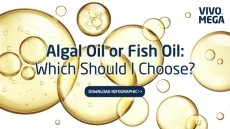NutraIngredients-USA predicts top industry influences in 2015

NDI guidance
It seems incredible, but three years ago we were looking forward to the re-release of the draft guidance on new dietary ingredients (NDIs). Three years! After failing to make its 2014 deadline to publish the redraft, the FDA will be under pressure to deliver soon.
An added complication is the potential revision of CFSAN’s Redbook to include dietary supplements – this is being strongly resisted by the industry, and Senators Hatch and Harkin even waded into the action by submitting a letter to the FDA panel at the recent hearing.
A spokesperson for the FDA told us last month: “This [NDI] guidance is still under development and the agency is actively working on it. [However,] we do not have a publication date.”
This may all be contingent on some key appointments at the FDA…
FDA
With Dr Susan Mayne, right, taking over as the new director at CFSAN, and a scientist at that, it will be interesting to see who the Agency finally appoints to the position of director of the Division of Dietary Supplement Programs. Do they go for a lawyer, or someone who has some scientific and industry knowledge?
FTC vs Bayer
This case has significant implications for the industry. While this is a continuation of a previous issue dating from 2007, the most recent issue focuses on claims made by Bayer on its Philips Colon Health product and whether the structure function claims require substantiation from 2 randomized clinical trials, which is not what the statute says for structure-function claims.
If the courts agree with FTC that two RCTs are needed to substantiate such claims, then expect loud and strong industry resistance, and rightly so. The Natural Products Association and the Council for Responsible Nutrition will both be appearing as Amicus Curiae after a New Jersey District Court rejected the government’s move to dismiss the trade associations.
We’ll continue to follow this case closely.
Actually, the FTC in general
At the Council for Responsible Nutrition’s 2014 Annual Meeting in Dana Point, CA, Scott Bass from Sidley Austin, LLC, identified the FTC as the single greatest threat to the industry. The Federal Trade Commission is taking a very keen interest in the dietary supplements industry and the claims being made on the products, particularly in categories such as weight management, sexual health, and bodybuilding.
Who can forget Dr Oz’s grilling by a Senate sub-committee last year over his flowery language and the knock-on effects that caused. “For my colleagues at the FTC, I realize I have made their jobs more difficult,” he told the sub-committee hearing.
What next from FTC in 2015?
Curcumin/turmeric
2014 was this ingredient’s breakout year, when it finally tipped over into the mainstream. According to a report published in the American Botanical Council’s HerbalGram, sales of herbal dietary supplements with turmeric/curcumin as the primary ingredient grew by 26.2% in 2013 to take the top spot in the natural channel.
The competitive environment is already hot, with suppliers jockeying for position with different forms with enhanced bioavailability. The science will continue to develop, and we’ll see if the curcumin market can continue to grow at such impressive rates.
Probiotics
We’re predicting a very good year for these friendly bugs. The science continues to evolve and expand, the number of potential health benefits increases, and there is now a mainstream interest and growing understanding on the role of the microbiota in our health.
According to Datamonitor, this sector is growing at a rate of 7% annually, and the global market for probiotics was $25 billion in 2013. It’s expected to grow to $35 billion by 2018.
We’ll be hosting our first Probiota Americas event in San Diego in June, and we’ll be bringing you many updates on that as we progress through the year.
The resurgence of omega-3s
After a tough 2013 and 2014, it looks like the bulk omega-3/fish oil market is ready for a resurgence. A consortium of fish oil suppliers and GOED have been working on a new campaign to remind people about the importance of taking their omega-3s, with a test campaign in Charlotte, NC working wonders in that local market. The next stage is to expand that on a national level. If the NC test is anything to go by, this could be a big year for omega-3s.
On the other hand, the more expensive omega-3 options don’t seem to have been affected by the decline (and may have even benefitted), with krill oil, algal oil, and more premium/concentration fish oil brands all reporting growth.
Add in the potential health claim submitted by GOED for blood pressure, and 2015 may be an excellent year (although it’s not clear if we’ll get a decision from FDA on the health claim during the next 12 months).
The US military
One out of left field, perhaps, but this is a market that needs a lot of attention and represents a huge opportunity. Omega-3s are getting a lot of attention from the military for their potential to protect against traumatic brain injury, while there is also research going on to see if the fatty acids can be a part of the solution for the increased suicide rates in military personnel. If you missed the excellent article by Dr Wayne Jonas in December, I’d recommend you check it out for the implications of a shift in attitude and approach to dietary supplements by the US military.
Speaking at the CRN’s Day of Science in Dana Point, CA in October, 2014, Dr Jonas said: “If you do research within a military setting and they see effectiveness, it is very likely you’ve produced a market.
“The US military is more than willing to create its own regulations for its own populations.”
Sleep
If there is one ‘health condition’ we’ll be keeping an eye on this year, it’s sleep. We, as a population, are not getting enough of it, and the younger members of society, those Millennials, are driving the sleep category, according to industry sources.
Melatonin is the long-established champion in this area, and many consumers have heard of it (even if they don’t necessarily know what it is or how to take it), but other ingredients are also playing in this space, including valerian, chamomile, tart cherries, magnesium, and many more.
Despite an abundance of natural options for sleep, there is a lack of quality science to support many of the ingredients, according to sleep researcher Michael Grandner from the University of Pennsylvania.
“We need to demonstrate that some of these things work,” he told attendees at the CRN’s Day of Science. “There are a lot of products on the market but it’s difficult to recommend many of them.
“Awareness of the importance of sleep is growing, and the motivation to get better sleep is growing. There is a tremendous opportunity to leverage science to move beyond old wives’ tales.”
The media…
The dietary supplements industry took some big hits from the mainstream media in 2014, but at least some of the outlets are no longer claiming the industry is unregulated!
One immediate threat on the horizon is the February 24 publication of a book by Catherine Price called Vitamania: Our Obsessive Quest For Nutritional Perfection, and may generate similar media attention to Dr Paul Offit’s Do You Believe in Magic: The Sense and Nonsense of Alternative Medicine.
The campaign to change the conversation on omega-3s could have important lessons for the wider dietary supplements industry, if it wanted to follow a similar course.
A different approach is to focus on the shining stars of the industry, like the amazing work of Vitamin Angels and the clear and undeniable benefits of vitamins for millions of children worldwide.
GMPs
As we reported at the end of last year, preliminary data from consultant Marian Boardley showed that overall 483 citations are down, but many of the observations still fall under the very basic lack of specifications and other process controls.
And we’re not at the point where the FDA has inspected every facility involved in dietary supplements, so it’s not yet clear if progress has been made by those who have previously been cited by the agency.
Transparency
We’re hearing it from many sources, and it can only be a good thing for the industry’s image and for building consumer trust. This came out loud and clear during our recent Business Leaders Forum, and has also been talked about in other arenas.
People like Robert Craven from FoodState/MegaFood have spoken at length about the need for “big T transparency” and how it can be the solution to many of the industry’s woes, while Vitamin Shoppe submitted all of the labels on products sold in its stores to the National Institutes of Health Dietary Supplement Label Database.
Transparency was becoming a much bigger part of the conversation in 2014, and we expect that to increase in 2015.






















